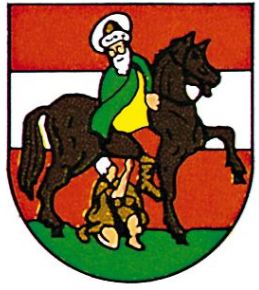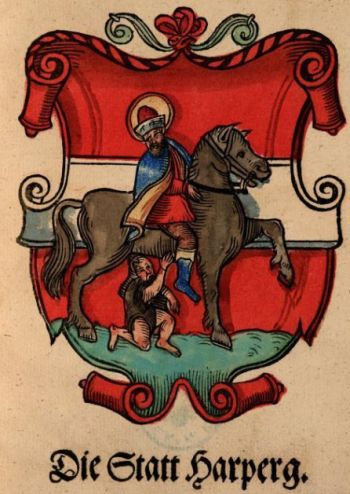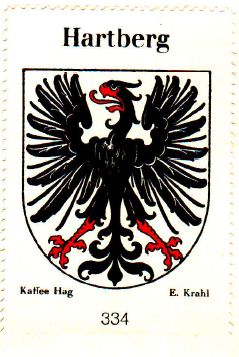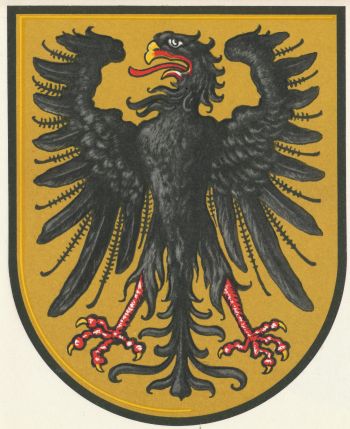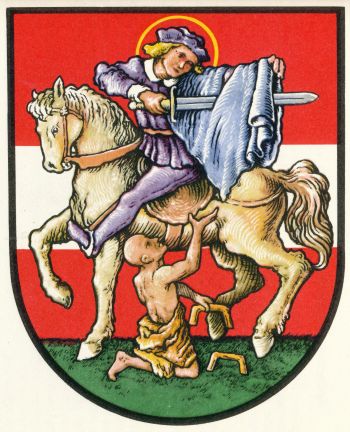Hartberg
| Heraldry of the World Civic heraldry of Austria - Österreichische Gemeindewappen |
HARTBERG
State : Steiermark
District : Hartberg
Official blazon
In einem roten von einem silbernen Balken durchzogenen Schilde erscheint auf grünem Boden die Gestalt des auf einem nach links schreitenden braunen, graugezäumten Pferd sitzenden Heiligen Martin.
Origin/meaning
The arms were granted on October 31, 1947.
St. Martin is the patron saint of Hartberg. The arms show him meeting the beggar, for whom he divided his own coat afterwards.
The city was founded in the Middle Ages (first mentioned as a city in 1286) to protect the road over the Wechsel mountain pass, which links (or separates) Lower Austria and Styria, and also the Eastern border of Styria.
The arms also contain the Austrian arms, Gules, a Fess Argent. This symbolises the importance of the pass road between Styria and (Lower) Austria. These states were independent countries in the Middle Ages.
The arms with the beggar already appear in the seals from the 14th century and also in the book by Bartsch in 1567. In the 1570s the town and region were sold to the Paar family, whose arms contained a crowned eagle in the second and third quarter. The city therefore used an eagle as arms until 1947 when the old arms were officially restored.
| The arms by Zacharias Bartsch (1567) |
The arms in the Coffee Hag album +/- 1932 |
| The eagle arms by Kobel (1954) |
The new arms by Kobel (1954), facing right instead of left |
Contact and Support
Partners:
Your logo here ?
Contact us
© since 1995, Heraldry of the World, Ralf Hartemink 
Index of the site
Literature : Image provided by Karl Palfrader (k.palfrader@aon.at), MStLA 12 (1962), p. 28; Bartsch (1567); Kobel and Pirchegger, 1954.

